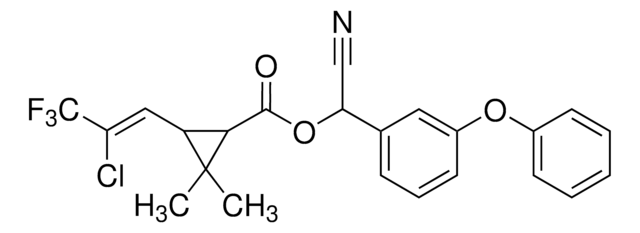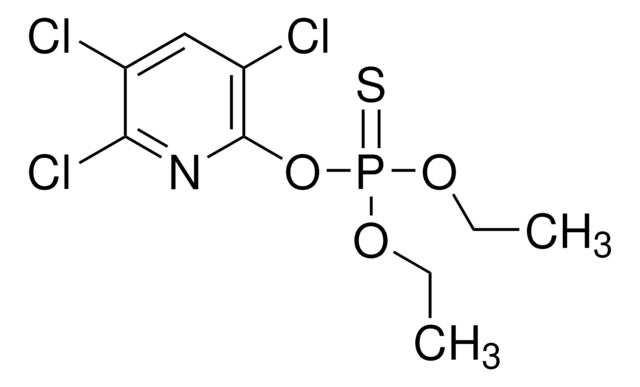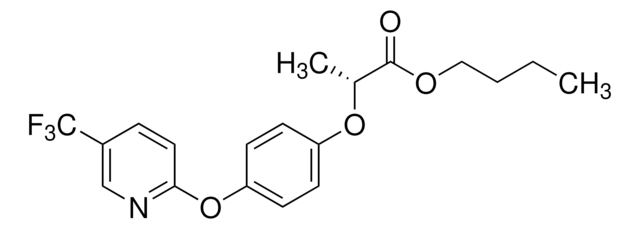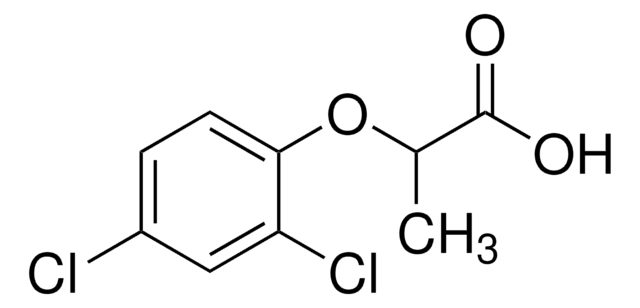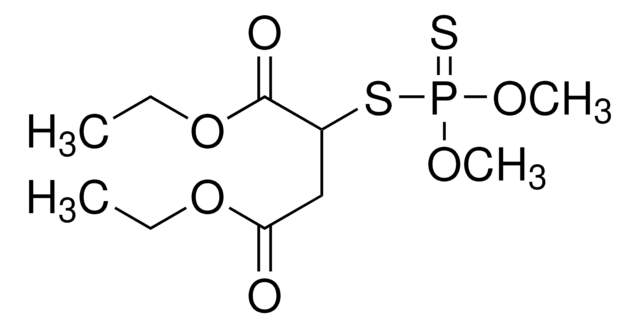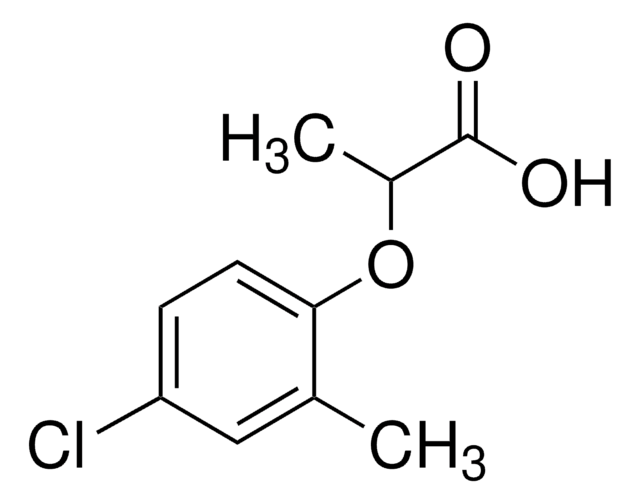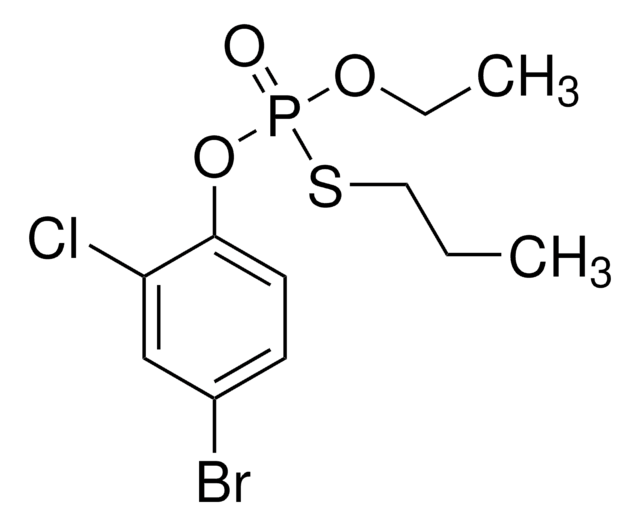45437
Dichlorprop-methyl ester
PESTANAL®, analytical standard
Sinónimos:
Methyl 2-(2,4-dichlorophenoxy)propionate
About This Item
Productos recomendados
grado
analytical standard
Nivel de calidad
Línea del producto
PESTANAL®
caducidad
limited shelf life, expiry date on the label
técnicas
HPLC: suitable
NMR: suitable
gas chromatography (GC): suitable
aplicaciones
agriculture
environmental
formato
neat
cadena SMILES
COC(=O)C(C)Oc1ccc(Cl)cc1Cl
InChI
1S/C10H10Cl2O3/c1-6(10(13)14-2)15-9-4-3-7(11)5-8(9)12/h3-6H,1-2H3
Clave InChI
SCHCPDWDIOTCMJ-UHFFFAOYSA-N
¿Está buscando productos similares? Visita Guía de comparación de productos
Aplicación
Productos recomendados
Información legal
Código de clase de almacenamiento
10 - Combustible liquids
Clase de riesgo para el agua (WGK)
WGK 3
Punto de inflamabilidad (°F)
Not applicable
Punto de inflamabilidad (°C)
Not applicable
Equipo de protección personal
Eyeshields, Faceshields, Gloves, type ABEK (EN14387) respirator filter
Elija entre una de las versiones más recientes:
¿Ya tiene este producto?
Encuentre la documentación para los productos que ha comprado recientemente en la Biblioteca de documentos.
Nuestro equipo de científicos tiene experiencia en todas las áreas de investigación: Ciencias de la vida, Ciencia de los materiales, Síntesis química, Cromatografía, Analítica y muchas otras.
Póngase en contacto con el Servicio técnico